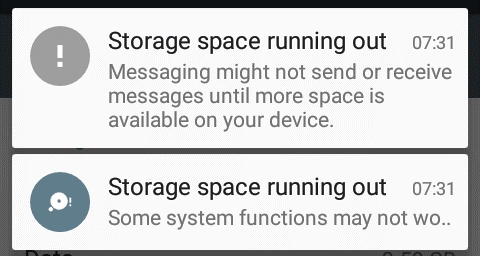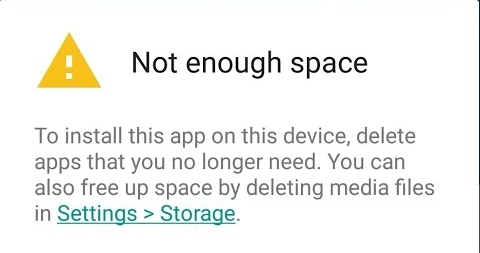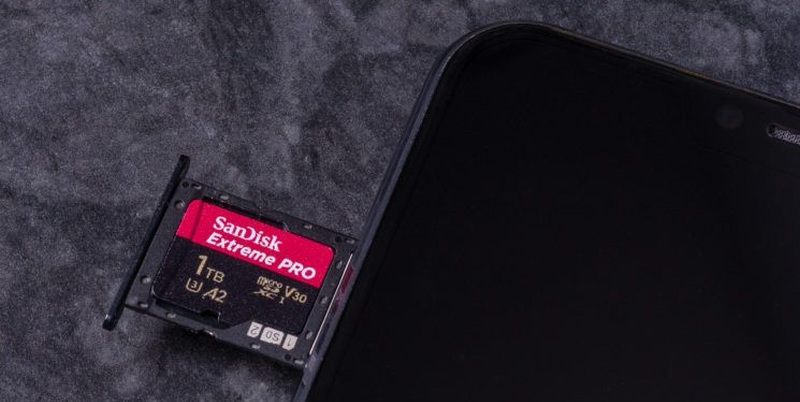Will microSD card slots ever really go away in mobile phones, tablets, and other mobile devices?
There are many reasons that expandable storage is important for mobile devices. It is true, however, that with an increasing number of mobile devices lacking the expandable storage option, and with more and more internal flash memory included with the phone, that it is becoming less in demand.
TechRadar recently released an article, “Does Samsung’s Galaxy S21 sound the death knell for Android phones with microSD?” Although it’s possible that the S21 may have an influence on the market, there will always be a demand for removable storage, and there are many reasons why.
On the other hand, if all the manufacturers conspire to exclude it against the betterment of their customers, then people will have no choice but to use older devices, less-powerful off-brand devices, or to be stuck with a device begrudgingly that lacks the features they want.
Lack of removable storage is probably not going to win out in the end, and one of the reasons is because the SD card manufacturers themselves have a vested interest, so there are competing market interests at work. For example, if removable slots are removed on mobile phones, it will hurt the removable storage market, and then they will work to get mobile manufacturers back on board with expandable storage slots.
Another factor is that in the short term, big companies like Samsung can get away with removing expandable storage capability from some of their phones, because they can leverage their brand name and brand recognition to sell devices even if they don’t have all the features people want. It’s what they did with removable batteries, after all. And as a result, we are stuck with devices which become trash when the battery dies.
In the long term though, abusing their brand will damage the reputation of the larger companies, and people will turn to the smaller companies which offer the features they want. Samsung’s rise to popularity was primarily driven around two main things: 1. An alternative, open-source operating system distinct from Apple, and 2. The option to have expandable storage. The main demographic that brought Android phone makers into the mainstream are privacy-focused individuals who desired more functionality out of their phones than apple allowed.
Today, this is getting farther and farther away. Android phone makers are becoming a lot like Apple, with Samsung leading the pack. They are less and less interested in what their customers want, and more interested in what can make them more short-term profit, even at the expense of long-term profit. They seem to think that if they kill the golden goose, they will still get more eggs. It’s not going to happen.
Here are the top 5 reasons why the demand for physical, expandable storage in mobile devices will never go away.
1 Running out of space and data

With the proliferation of cloud storage options, it's becoming easier to expand storage without actually buying another physical device. There are many problems to this though. For one, large amounts of data sent to and from the cloud could quickly use up all their data, costing more in the long-run. This can be avoided by using wifi when you can, but that's not always possible or desired. Expandable storage lets you put up to 2TB at your fingertips.
2 Out of a service area

Granted, cloud storage does seem like a decent option to expand storage, but what if you are offline or in an area with a bad connection? Murphy's Law states that you'll need the data most when you are in a bad area, out of data, or out of service, sticking you without what you need when you need it. If you don't have access to your data, then what use is it? If you have expandable storage, you won't have this problem.
3 Data Security & Privacy

Who really has access to your data? Do you really want to store your kid's photos or the private pictures you sent to your loved one getting into the wrong hands? How do you think many of these celebrity "hacks" happen? Of course, they uploaded them online, and their data got intercepted. Also, having an open channel to any online server runs the risk of your phone and all the data on it getting compromised by hackers. This could be very bad, especially for businesses with high security. So, those businesses are stuck either not having enough storage, or getting a phone with expandable memory.
4 Data Integrity

How much can you really trust a cloud provider to keep your data from getting corrupted? You can hope that nothing will happen to your data, but what if something does? Even AWS has the possibility to lose data. This could also happen on your own phone, but at least you're in control of it. A strike of lighting in a data center could be all it takes to lose your data forever. If you back up your data, then it can solve the problem, but it also makes the phone redundant. The microSD card is actually a physical backup - even if your phone dies, then you have it. The most secure way to keep your data safe is to have multiple backups - one on your phone, one on your computer, and for data that is not private, a copy on the cloud as a third copy.
5 Increasingly memory-hungry applications

As mobile camera resolutions get bigger, so do file sizes. As phones start to film in 4K, memory gets used up really quickly. It's not hard to use up 1TB of storage with a couple months of 4k footage of family memories - and 1TB of internal memory is only on the highest end devices, and comes at a very hefty premium.
Then when that is used up, what are you stuck doing? Emptying it out to start again. If you have a microSD slot, then you can change out the microSD card just like you can in traditional DSLR camera. This is even more important for photographers and videographers who do it for a living. They don't have the time to wait to copy and delete the data several times a day between shoots. Meanwhile, swapping out a new card in the expandable memory slot can be done in seconds.
It's not just photographers, though. Games are getting bigger and bigger, and before you know it, you're out of space. Expandable memory can be used to store game data or application data seamlessly and without an internet connection. Without a memory slot, though, and you're stuck choosing between games and applications instead of having them all. And if COD Mobile has an update? Goodbye 30GB of remaining storage. Now you have to delete even more data and apps just to use your phone. Expandable memory will not have this problem.
Cloud storage is also not a solution for big applications, because you can't store half of a local game on the cloud like you can on microSD cards in your phone. Expandable storage is the only way to increase your phone's capacity in this regard.
To answer TechRadar’s points:
-
Trendsetter?
Hardly. There is no evidence that Samsung will stop putting in expandable storage. Just because they released a couple devices without it does not by any means create a trend. They did it with the Galaxy S6 as well, but suffered for that mistake. Nothing has changed – the needs for microSD are all the same. Others may foolishly follow in their path, but unlike Samsung, they cannot afford to sacrifice one of the most desired features and lose a large portion of their customer base. Samsung will set no trend here. -
Backlash or acceptance?
Backlash. Just like the Galaxy S6 that drove millions away from Samsung for years, the same is likely to happen again. It doesn’t mean that Samsung will listen to their customers, but it won’t do them any favors either. They can enjoy spending millions more in their marketing budget in future years due to this mistake. -
Do you even need expandable storage?
I think we’ve adequately addressed this above.
What do you think? Do you need a microSD slot? Would you pass on a phone if it doesn’t have expandable storage?





THis article needs a followup.
The followup I can provide is that with 1TB in the phone it would be good except that now you can get 1.5TB micro sd that you can transfer between devices, and the 1tb model opf phone costs way more than the 1.5TB micro sd, so yes I still won’t get a device without a micro sd.
Yes. I am in the market for a new phone. I’ve been a faithful customer to Galaxy phones and one of the main reasons is because of the expandable storage of the SD card. My phone runs low on storage constantly so I’m always putting in a new SD card. I hated that they did away with not being able to change the battery but getting rid of the SD card slot & head phone Jack is the last straw & I know many people who feel the same way. Nobody really trusts the Google & cloud storage sites and having a physical backup of important photos & documents such as a SD card are important so I will be seeking a different phone to buy that listens to their customers need. I’m sick of throw away phones that don’t last long especially ones that will fill up in 6 months max. No thanks! I’m going to look into a different direction.